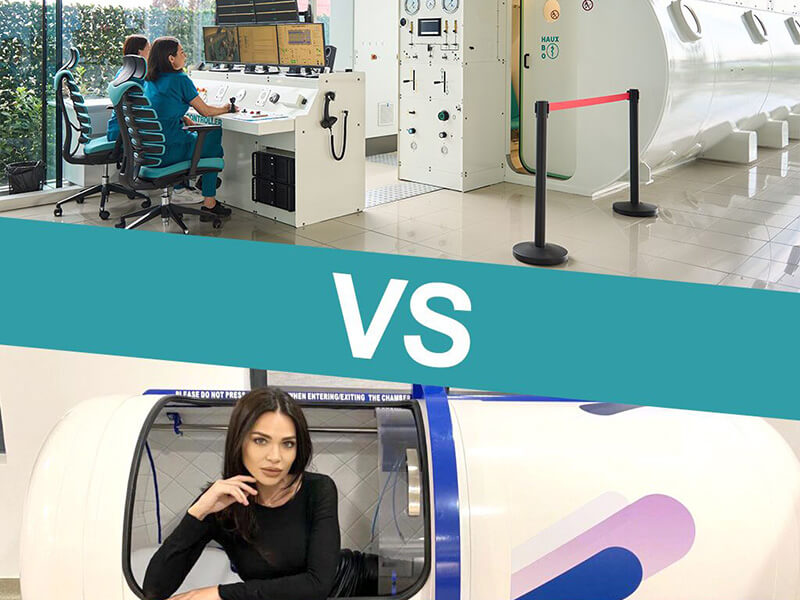
Article reviewed by: Dr. Sturz Ciprian, Dr. Tîlvescu Cătălin and Dr. Alina Vasile
Hyperbaric therapy in the treatment of recurrent urinary infections
Urinary infection is known to be a condition that creates discomfort and occurs mainly in the cold season. In approximately 30% of cases the disease recurs. If not treated properly, recurrent UTI can lead to the development of serious health problems, such as impaired kidney function. In these situations, hyperbaric oxygen therapy is recommended as an adjuvant treatment.
Urinary tract infections are caused by bacteria, which enter the urinary tract through the urethra and begin to multiply in the bladder. In most cases, the bacteria involved in UTIs is Escherichia Coli. This, as a rule, is at the level of the colon and the anus.
In the case of urinary infection, the following symptoms can be observed:
- Frequent urination;
- Continuous sensation of urinating;
- Fever, nausea, dizziness, vomiting;
- Pain in lower back;
- Curdy urine, with an intense and unpleasant smell.
Because they are caused by bacteria, UTIs are often treated with antibiotics. The duration of the treatment depends on the listed symptoms, how serious the urinary infection is, but also on the medical history.
In general, symptoms improve after 2-3 days after starting treatment. But in the case of recurrent urinary infections, the effective healing of the urinary tract can be delayed. Thus, therapy with hyperbaric oxygen has the effect of slowing down the evolution of the condition, preventing recurrent infection.
How recurrent urinary tract infections can be treated:
Antibiotics: They are used to treat urinary tract infections. In case of repeated infections, longer periods of antibiotic treatment may be prescribed to prevent recurrences.
Lifestyle changes: Sometimes, lifestyle changes can help reduce the risk of recurrent UTIs and complications. Thus, it is advisable to drink enough water every day, to have regular urination, and to pay more attention to intimate hygiene.
Hyperbaric oxygen therapy: To strengthen the immune system, so that it is able to fight infections, and thus reduce the recurrence of urinary infections, hyperbaric oxygen therapy is indicated.
How can hyperbaric oxygen help patients?
Results in severe or complicated infections: In cases where a UTI becomes complicated and spreads to other areas of the urinary tract or body, HBOT is recommended to increase the oxygen supply to the affected tissues. The extra oxygen helps fight infection and speed up tissue healing.
Reduces inflammation: Hyperbaric oxygen therapy helps reduce inflammation in tissues, which is beneficial in severe UTIs that cause extensive inflammation.
Improves the immune system: HBOT enhances the functioning of the immune system by increasing the concentration of oxygen in the blood. A stronger immune system helps the body fight infections more effectively.
It is important to emphasize that hyperbaric oxygen therapy is not a standard treatment for recurrent UTIs and should be used at the recommendation and under the supervision of a hyperbaric medicine physician .
Diseases affecting the urinary bladder, treated with HBOT
Interstitial cystitis is a chronic condition that occurs in the urinary bladder and causes pain and pressure locally. Fibromyalgia is a chronic condition characterized by pain in the muscles and soft tissues.
In the case of both conditions, conventional therapeutic treatment does not always provide the desired results. One solution is hyperbaric oxygen therapy, where recent studies provides a significant beneficial response. In a study conducted at the ATiP Center of Hyperbaric Medicine, in Italy, the effects on quality of life, symptoms, urodynamic parameters and cystoscopic examination were evaluated in patients suffering from both interstitial cystitis and fibromyalgia.
In the study, patients inhaled 100% oxygen pure, in a chamber with a pressure of 2 ATA, for 90 minutes. Patients underwent a cycle of 20 sessions for 5 days per week and a second cycle of 20 sessions one week after the end of the first cycle.
Thus, a regression of petechiae (small spots on the skin caused by a small hemorrhage) and Hunner's ulcers was observed 6 months after the end of HBOT treatment.
In a other research, which took place in France, the prognostic factors for the effectiveness of hyperbaric oxygen therapy on hematuria (presence of blood in the urine) at 3 and 12 months in radiation-induced hemorrhagic cystitis were studied.
A number of 134 patients were treated between 2008 and 2013 at the hyperbaric medicine center at University Hospital of Toulouse. HBOT was applied according to a standardized protocol of 20 sessions with pure oxygen at 2.5 ATA. The number of meetings was 50, for 12 months.
The effectiveness of HBOT was:
- 83% at 3 months
- 81% at 12 months
- 20% of patients had minor side effects.
Also, after treatment, the number of hospitalizations decreased by 75% in the following year.
Do you often face recurring urinary infections? We are waiting for you at the Hyperbarium Clinic, where you will benefit from an initial consultation and a complex and personalized treatment plan, supervised by specialized medical personnel.
Appointments can be made here.
Bibliography:
https://bmcurol.biomedcentral.com/articles/10.1186/s12894-019-0545-6
https://www.urofrance.org/fileadmin/documents2/data/PU/2017/68750/FR/1098888/main.pdf




